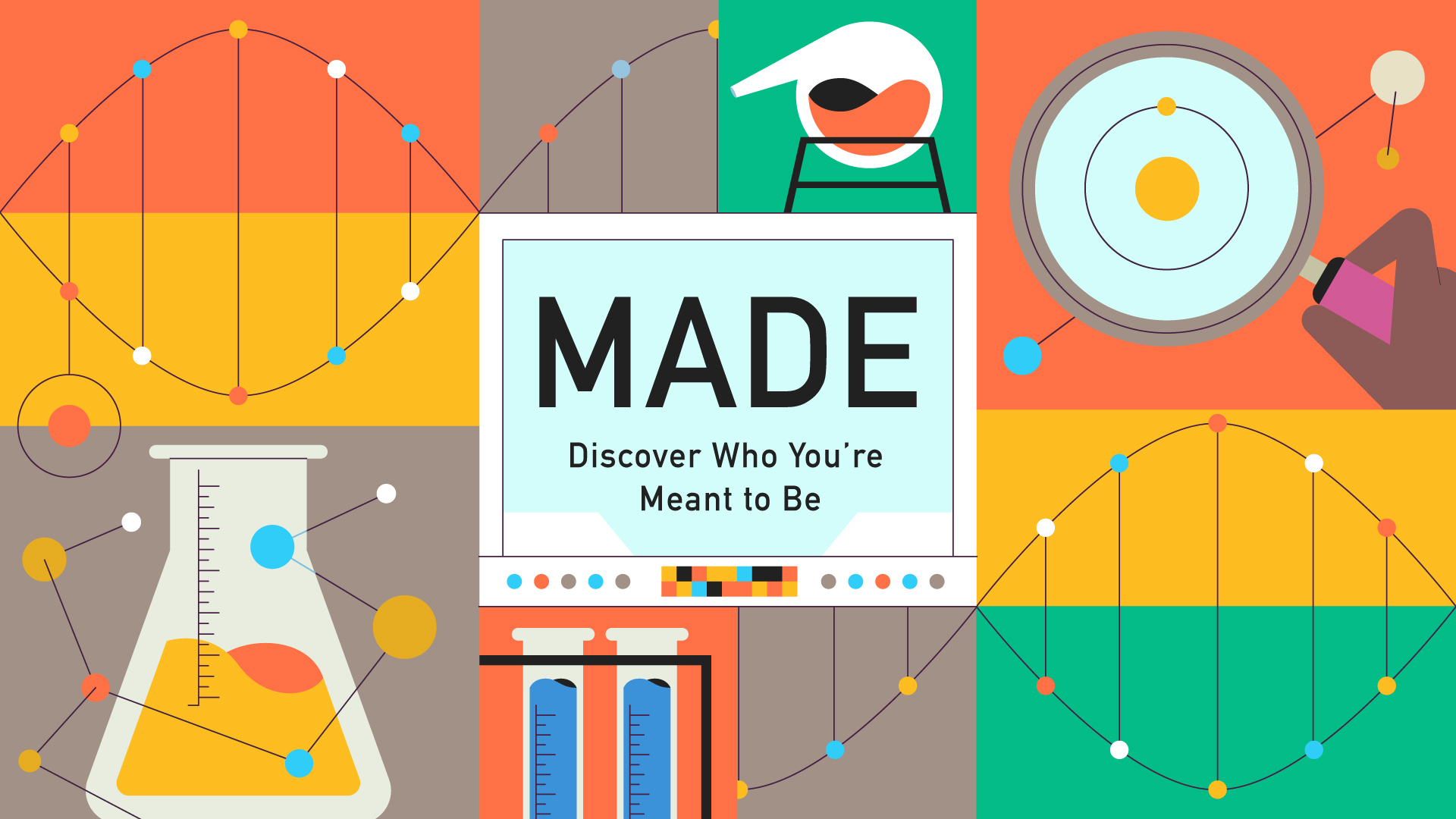Series Overview
Have you ever thought about what makes you, you? We all have different backgrounds, families, or favorite colors. We all enjoy different sports, foods, vacations, and have different friends and experiences in life. Even twins have different fingerprints! Together, all of those pieces make up who we are. But we can’t understand who we are and what we were created to do without first understanding the way God sees us. Every single one of us was created in the image of God. But even as image bearers, we were created as unique. There is only one you, and this month we have the chance to explore how God can use the ways we were created to make a difference.
Memory Verse
“How you made me is amazing and wonderful. I praise you for that. What you have done is wonderful. I know that very well.” – Psalm 139:14, NIRV
Week One (February 2)
Fearfully + Wonderfully Made
Bible Story: Psalm 139:14; Genesis 1:26-28; Ephesians 2:10
Key Question: How would you describe yourself?
Virtue: Uniqueness – Learning more about yourself so you can make a difference
We start the month in Psalm 139:1-14 where King David has just written a psalm about God’s love for us. Since the beginning, we were created in the image of God. God knew and formed the deepest parts of us, and as image bearers, God loves us no matter what.
If you were to ask your friends what’s one word they would use to describe you, what would they say? Would you agree with them? Often times we assign labels to ourselves or think less of ourselves than others do. We hope this question will help preteens begin to look at themselves the way that God looks at them.
Week Two (February 9)
Moses + The Burning Bush
Bible Story: Exodus 3-4:15
Key Question: What’s unique about you?
Virtue: Uniqueness – Learning more about yourself so you can make a difference
In Week 2, we head to Exodus 3–4:15 for the story of Moses. Moses had been through a LOT in his life. He was born as an Israelite but raised in the Egyptian Pharoah’s household, and when he grew older, Moses sinned and
ran away from his home. Yet God saw Moses and had created him for more than he could ever imagine. Even
though Moses didn’t see how special he was, God used Moses to make a difference in the lives of so many people.
Have you ever heard the phrase, “There’s something different about you,” and weren’t quite sure how to take that? Is that a good thing or…Sometimes being different and unique might seem like a bad thing, but God has created each and every one of us uniquely and for good. Our hope is that this question opens preteens up to love the unique ways God created them.
Week Three (February 16)
Lydia
Bible Story: Acts 16:13-15
Key Question: What are your gifts?
Virtue: Uniqueness – Learning more about yourself so you can make a difference
In Week 3, we head to Acts 16:13-15, where we find a successful businesswoman named Lydia. On Paul’s second
journey, he headed to Philippi where he found Lydia and a group of women gathered together to pray. Paul shared
the news of Jesus with Lydia, and she used her gifts to serve the believers.
Has anyone ever told you that you were really good at something? Maybe it was a sport or the way you solve problems. Our prayer is that preteens will begin to explore the different gifts and talents they have and how they can use them to help others.
Week Four (February 23)
Timothy
Bible Story: 1 Timothy 4:12
Key Question: Who has made a difference in your life?
Virtue: Uniqueness – Learning more about yourself so you can make a difference
We close out the month in 1 Timothy 4:12, where we learn about Timothy and the work he did with Paul. Timothy
was young, and he could have let that stop him from helping Paul carry out the mission of sharing Jesus with others. Yet Timothy chose to be brave and let God use him to teach others about Jesus in spite of his age.
Is there someone in your life who has always been encouraging or who has helped you out of sticky situations more than a time or two? God has put people in our lives not just for our own enjoyment but so that we can make a difference to those we interact with. Our hope is that as preteens think through this question, they will be able to recognize the people in their lives they too can impact.
